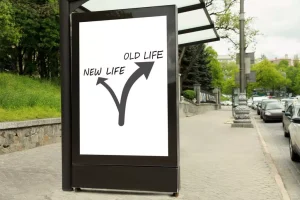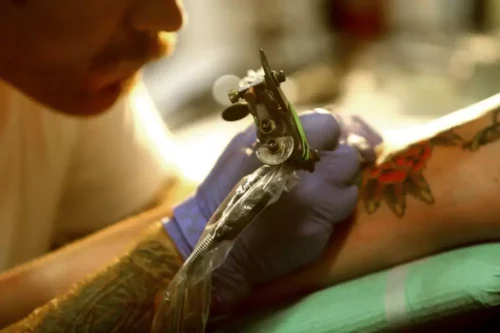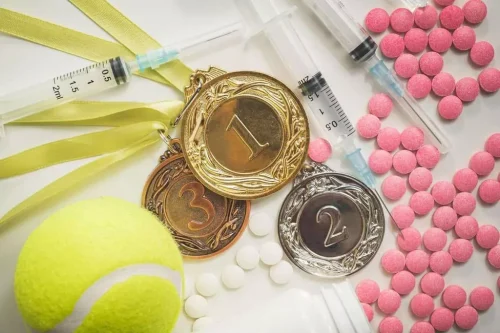
Now that you’re well-versed with all the causes and potential solutions to post-alcohol insomnia, it’s time to put this knowledge into action. Modify routines, reevaluate lifestyle choices, and don’t hesitate to consult a professional if need arises. This altered sleep architecture during alcohol withdrawal is considered a contributor to relapse, as individuals may use alcohol in an attempt to restore sleep normality. Thus, understanding and addressing such sleep disturbances is critical during the recovery process.
Limit Daytime Naps

Research shows that regular alcohol intake can reduce sleep quality over time, potentially causing issues such as insomnia. During the second half of the night, sleep becomes more actively disrupted. The rebound effect may include more time in REM—a lighter sleep stage from which it is easy to be awakened. In the first half of the night, when the body is metabolizing alcohol, studies show people spend more https://ecosoberhouse.com/ time in deep, slow-wave sleep and less time in REM sleep. REM sleep, which gets shortchanged in the first half of the night under the influence of alcohol, is important for mental restoration, including memory and emotional processing. It can seriously suppress the immune system, impair cognitive and motor function, and increase the risk for heart disease, heart attack, stroke, diabetes, and more.
Let’s talk about your recovery
In a normal circadian rhythm, hormones are released at certain times throughout the day. Alcohol interrupts this process, causing abnormalities in how circadian hormones are released. As with any sleep aid, natural or otherwise, it’s crucial to use them responsibly and as part of a broader approach to improving sleep hygiene. Drinking alcohol is often seen as something to do to let loose and enjoy oneself in the context of a party, bar, or other social scenario. At UW Medicine, our mission is to improve the health of the public. You can reach out to a qualified therapist if you’re having trouble transitioning out of alcohol use.
Types of Personality Disorders: A Comprehensive Guide to Personality Disorders and Treatment Options

Falling asleep and getting a full night’s rest are real problems that need to be managed effectively to maintain sobriety. Thankfully, sleeping without alcohol is an achievable goal if you follow several recommended strategies. Binge drinking occurs when a man has five how to sleep without alcohol drinks, or a woman has four drinks within two hours. This pattern of drinking is linked to insomnia, which can develop after binging. One study on binge drinking and insomnia found that people who binged two days a week had an 84% higher chance of having insomnia.
Types of Insomnia
- In the early stage of alcohol withdrawal, many individuals experience an increase in sleep latency (the time it takes to fall asleep) and frequent night awakenings.
- Daily drinking can have serious consequences for a person’s health, both in the short- and long-term.
- Although experts can’t be certain that alcohol directly causes insomnia, numerous studies have found a link between this sleep disorder and alcohol consumption.
- This sudden overactivity can result in disturbed sleep and insomnia.
- Developing new ways to fall asleep without alcohol will result in healthier habits, better relationships, and an overall higher quality of life.
Hearing others’ stories nurtures hope and resilience, while offering practical advice on overcoming sleep challenges. The collective wisdom of support groups can be the key to conquering insomnia. In all, it’s imperative to note that these are merely factors and not binding verdicts. Insomnia is subjective to the person involved as everybody’s body responds differently to different conditions and stimulants. Your sleep debt is compared against your sleep need — which is the amount of sleep you need.
- Then, as withdrawal from the drug or alcohol occurs there’s a big sleep-wake reversal which then needs to be addressed.
- This duration differs based on the individual; however, it generally lasts about a week to 10 days.
- Of course, giving up alcohol is not always easy, and there may be some challenges along the way.
- If alcohol continues to disrupt your overall sleep quality, you may consider cutting it out entirely, or limiting your intake before bedtime.
There are also several steps you can take to improve your quality of sleep and quality of life. Some you can adopt on your own, and some are under the supervision of a health professional. Gillian Tietz is the host of the Sober Powered podcast and recently left her career as a biochemist to create Sober Powered Media, LLC.
- While alcohol does initially make you feel sleepy, it significantly impacts the quality of your sleep, and not in a good way.
- Even though alcohol may help you fall asleep, it interferes with the quality of your sleep.
- The history of the word “nightcap” in regard to alcohol dates back at least to the 1800s and has persisted in the public consciousness since then.
Studies show that alcohol affects the homeostatic drive that regulates sleep, disrupting the onset and maintenance of sleep and leading to issues such as insomnia. The catch is that while alcohol makes it easier to fall asleep, research shows that the quality of sleep is worse. This study performed by Stein and Friedmann reviews the association between disturbed sleep and alcohol use. They state that an estimated 10 million people speak to a healthcare professional about disturbed sleep and sleep disorders. This is due to there being an observable reduction in REM sleep (rapid eye movement).
- Answer three questions to understand if it’s a concern you should worry about.
- If that mimosa with brunch hits you particularly hard, it may be the result of circadian timing.
- In this post, we’ll cover ways to help you learn how to sleep without alcohol, as well as position yourself for quality sleep and examine why alcohol is not the sleep aid it is thought to be.
How Long Does It Take Sleep to Improve After Stopping Drinking Alcohol?

If you or a loved one is struggling with addiction, our expert team is here to guide you every step of the way. So while cutting out drinking will likely benefit your sleep, there may be other factors affecting your shuteye. Even though a glass or two may help you initially drift off faster, it probably won’t benefit your sleep quality in the long run. People who go to bed with alcohol in their system may be more likely to wake early in the morning and not be able to fall back to sleep, another consequence of the rebound effect. In 2008, Mom passed away from throat cancer, one day after my six year sober anniversary.
There are both psychological and physical hurdles to overcome when seeking sobriety. Andy explains how a straightforward, 7-stage process enabled him to change a lifelong addiction to alcohol. For some addicts, the problem may be their urge to constantly sip on something.



